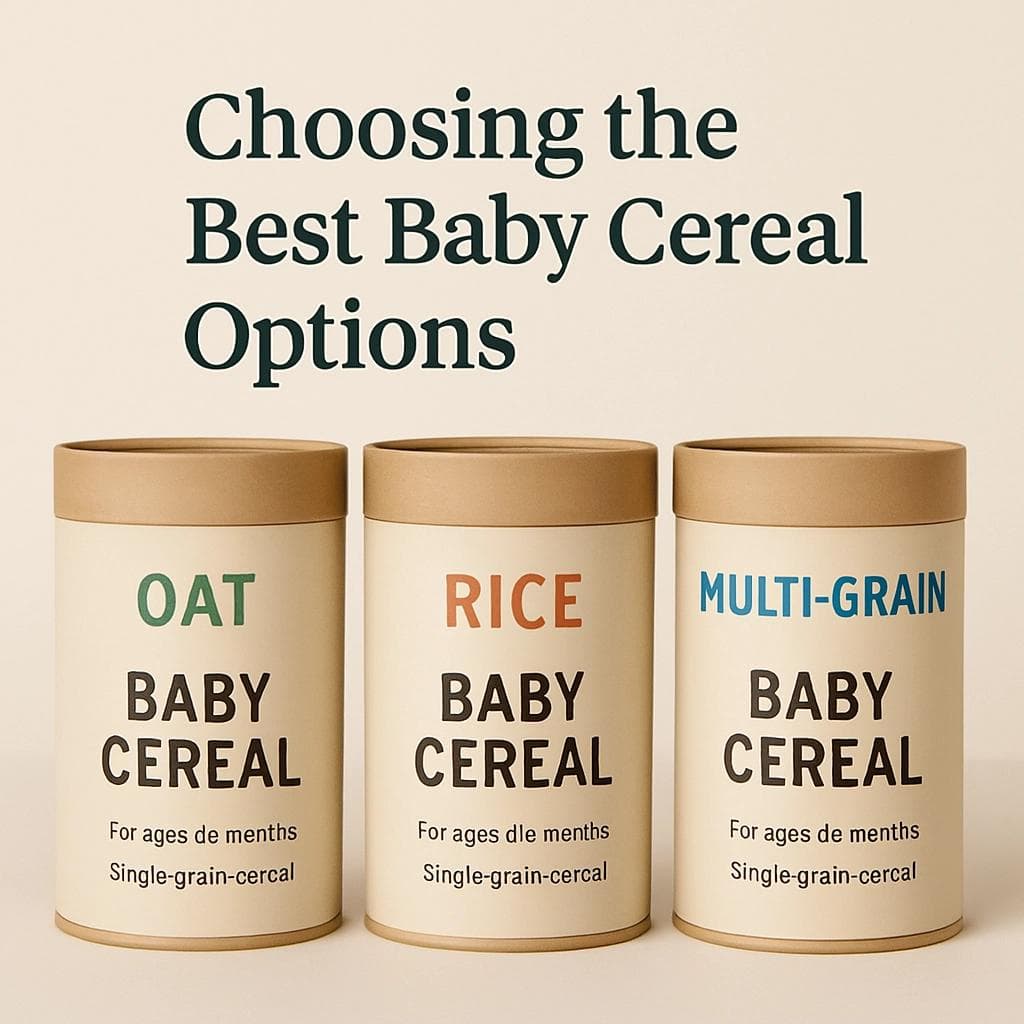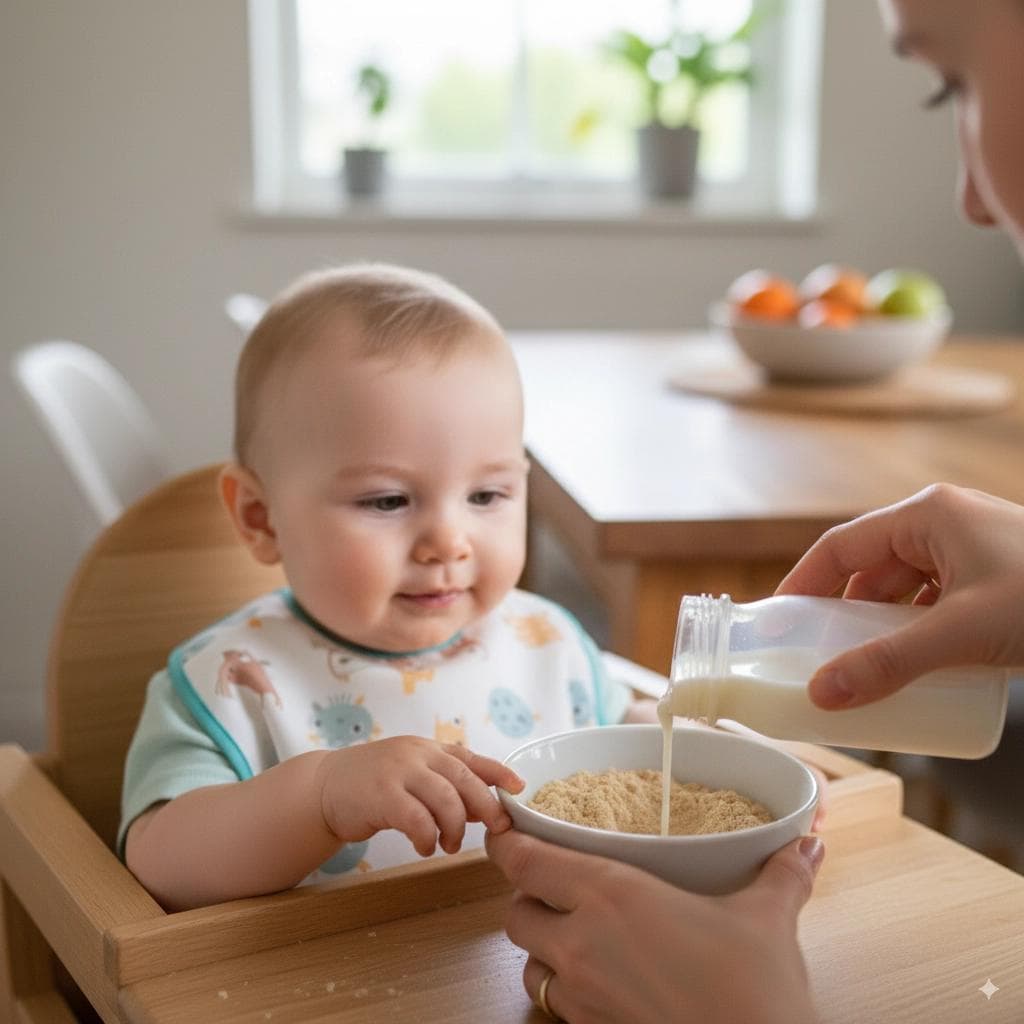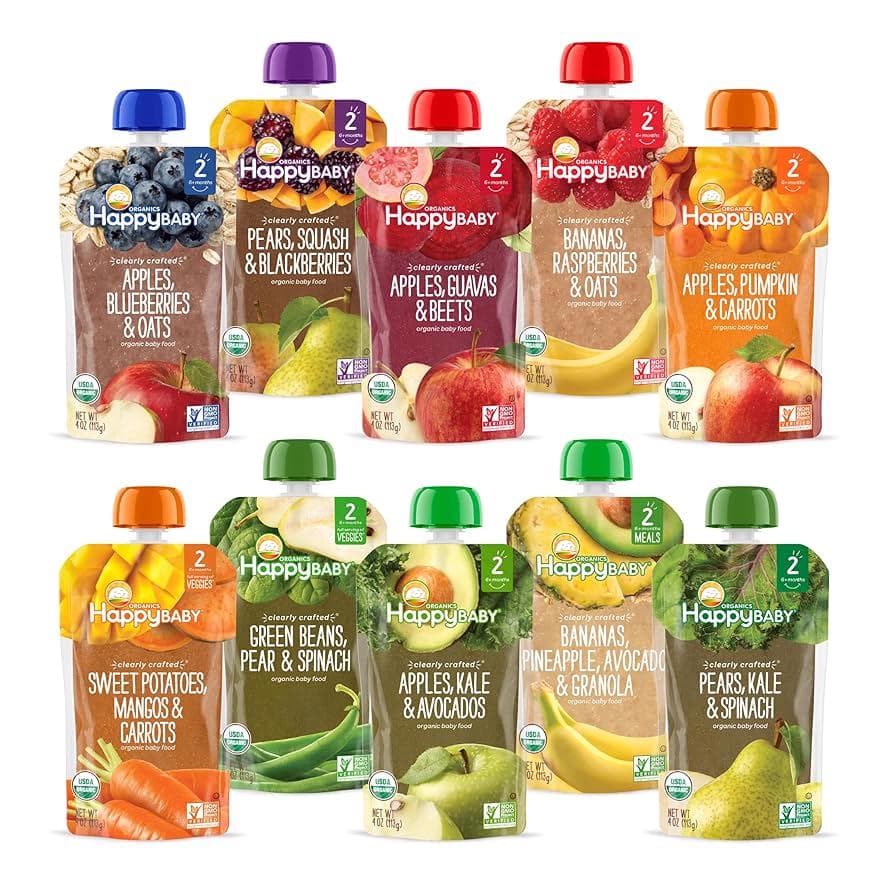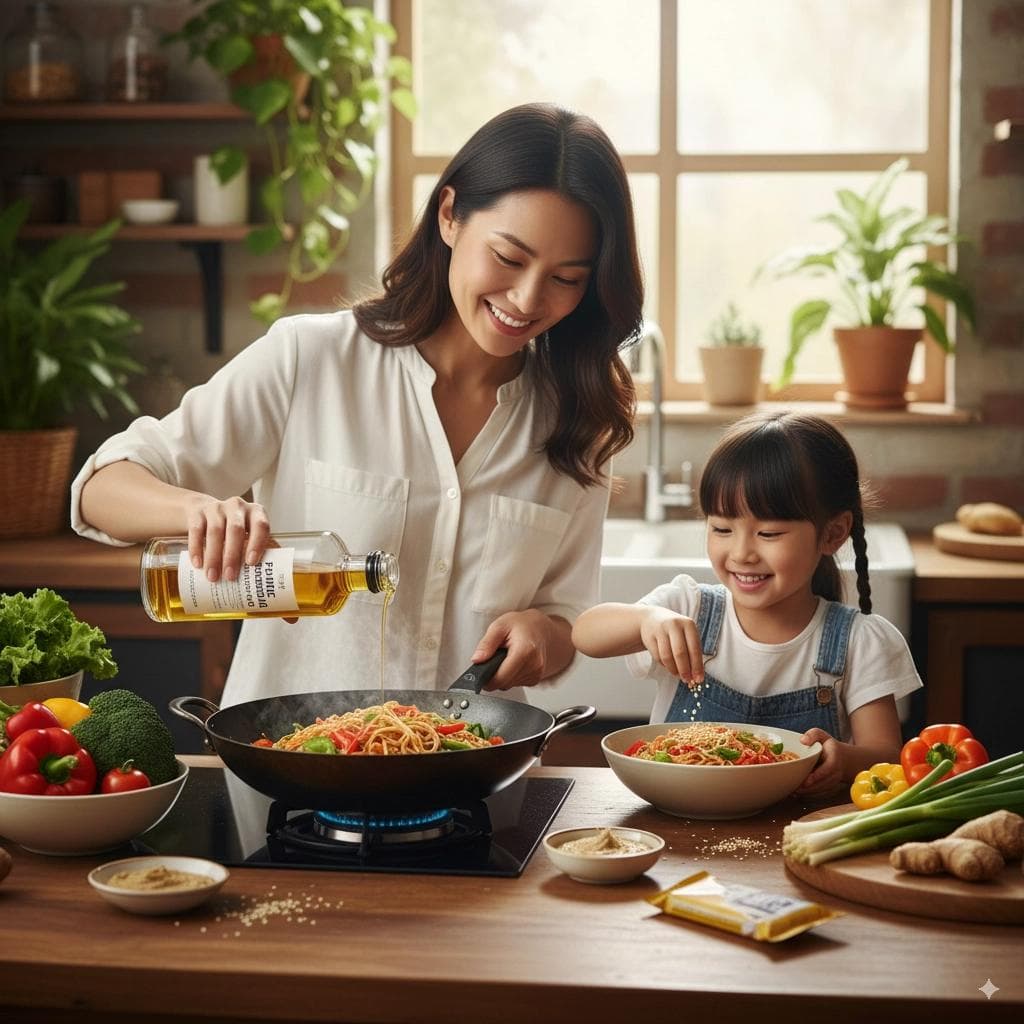

Introducing solid foods is a significant milestone in your baby's development, and selecting the right cereal can set the foundation for healthy eating habits. In this guide, we'll explore various baby cereal options, focusing on nutritional value, organic choices, and appropriate cereals for different stages of your baby's growth.

Baby cereal is often one of the first solid foods introduced to infants around four to six months old. It's generally fortified with essential nutrients like iron, which supports brain development and overall growth. The transition from breast milk or formula to solid foods should be gradual, and baby cereal can help make this shift smoother due to its mild taste and soft texture.
Baby cereals are typically enriched with vital nutrients that are essential for infants, making them an excellent choice for early nutrition. Iron fortification is crucial as it plays a significant role in cognitive development and preventing anemia, which is common in babies after six months. Additionally, these cereals often contain other important vitamins and minerals, such as zinc and vitamin B, contributing to overall healthy growth.
The mild taste and soft texture of baby cereals make them an ideal choice for introducing solids. Babies are accustomed to the flavors of breast milk or formula, and cereals can mimic this familiarity while gently introducing them to new tastes. The smooth consistency is easy for infants to swallow, reducing the risk of gagging and making the eating experience enjoyable.
Introducing cereals can make the transition from liquid to solid foods smoother for both parents and babies. The gradual shift helps babies get used to the idea of eating with a spoon and prepares them for more complex textures and flavors. This early exposure is crucial in developing healthy eating habits and preventing picky eating as they grow.
When choosing baby cereal, you'll encounter various types, each with unique benefits. Understanding these types can help you make an informed decision.

Rice cereal is a popular choice for many parents as it's easy to digest and has a low risk of causing allergic reactions. It's often recommended as the best baby cereal to start with due to its smooth texture.
However, recent concerns about arsenic levels in rice have led some parents to explore other options. When choosing rice cereal, look for brands that test for arsenic and ensure safe levels. Opting for organic rice cereal may also reduce the risk of chemical exposure, providing peace of mind for health-conscious parents.
Oatmeal cereal is another excellent option, especially for infants with a sensitivity to rice or gluten. It's high in fiber and aids in digestion, making it one of the best organic oatmeal for babies. Many parents opt for organic baby oatmeal cereal for its health benefits and minimal pesticide exposure.
Oatmeal is also rich in essential nutrients like magnesium and phosphorus, which are vital for bone development. The slightly thicker texture of oatmeal can help babies practice chewing, an important skill for transitioning to more solid foods.
Wheat cereal can be introduced around six months, provided there are no concerns about gluten sensitivity or allergies. This type of cereal is rich in nutrients and can be an excellent addition to your baby's diet once they've tried and tolerated other grains.
Introducing wheat cereal early can help identify gluten sensitivities, allowing parents to make necessary dietary adjustments. Wheat is also an excellent source of energy due to its carbohydrate content, supporting active play and growth.
Multi-grain cereals combine several grains such as rice, oats, and barley, offering a diverse nutrient profile. These cereals are ideal for babies who have already been introduced to single-grain cereals and are ready for more complex flavors.
The combination of grains provides a broader spectrum of nutrients, essential for a balanced diet. Multi-grain cereals can also prevent flavor fatigue in babies, encouraging them to explore and enjoy different tastes.
Organic baby cereals are made from grains that are grown without synthetic pesticides or fertilizers, providing a cleaner option for your baby. Here are some of the best organic baby cereal options:
Organic baby oatmeal is a popular choice among parents seeking wholesome nutrition without the additives. Look for brands with simple ingredient lists, focusing on whole grains and minimal processing.
Organic oatmeal offers the same nutritional benefits as regular oatmeal but with reduced exposure to harmful chemicals. This choice supports environmental sustainability and promotes a healthier start for your baby.
When opting for organic infant rice cereal, ensure the brand you choose has tested for arsenic and complies with safety standards. Organic options can reduce pesticide exposure and are often fortified with essential vitamins and minerals.
Choosing organic rice cereal also supports eco-friendly farming practices, contributing to a healthier planet. The emphasis on safety and purity makes it a reliable choice for cautious parents.
These cereals provide a variety of textures and tastes, introducing your baby to new flavors. They are suitable for older infants who have been exposed to single-grain cereals and are ready for more variety in their diet.
Organic multi-grain cereals offer a comprehensive nutrient profile, supporting diverse dietary needs. The variety in flavors can stimulate your baby's palate, fostering an adventurous eater.
When selecting the best baby cereal for your little one, keep these nutritional factors in mind:
Iron is crucial for your baby's development, particularly for brain health. Most infant cereals are fortified with iron, making them an excellent choice to prevent iron deficiency, which is common in infants after six months of age.
Ensuring your baby's cereal is iron-fortified can help maintain healthy hemoglobin levels, supporting oxygen transport throughout the body. Adequate iron intake is also linked to improved cognitive function and physical development.
Whole grains retain more nutrients compared to refined grains. Choosing whole grain baby cereal can provide your baby with essential nutrients like fiber, vitamins, and minerals.
Whole grains are also beneficial for digestive health, promoting regular bowel movements and reducing the risk of constipation. They provide sustained energy release, keeping your baby active and alert.
Check the ingredient list for any added sugars or salt. The healthiest infant cereal options should have a simple, clean ingredient list without unnecessary additives.
Avoiding added sugars and salt is essential for developing healthy eating habits and preventing future health issues such as obesity and hypertension. A natural flavor profile encourages babies to enjoy foods without the need for sweeteners or seasonings.
Stage 1 cereals are designed for infants around four to six months old, who are just beginning their journey with solid foods. These cereals are usually single-grain and have a smooth consistency, making them easier for young babies to digest.
Single-Grain Rice Cereal: Ideal for its simplicity and low allergy risk. It's often the first choice for many parents due to its gentle introduction to solids.
Single-Grain Oatmeal Cereal: Great for babies with rice sensitivities. Its high fiber content aids digestion and promotes regularity.
Single-Grain Organic Options: Provides a cleaner start with fewer pesticides. Organic options ensure a safer introduction to solid foods with minimal chemical exposure.
Stage 1 cereals are pivotal in establishing a foundation for a varied diet. They help babies acclimate to the process of eating solid foods and gradually prepare them for more complex textures and flavors. These cereals also allow parents to monitor any potential allergic reactions or sensitivities.
As babies grow, transitioning from Stage 1 to Stage 2 cereals introduces them to more flavors and textures. This progression is crucial for developing chewing skills and encouraging diverse taste experiences, setting the stage for lifelong healthy eating habits.

Preparing baby cereal is simple and can be customized to your baby's needs:
Start by mixing the cereal with breast milk or formula to achieve a familiar taste and smooth consistency. This approach helps babies accept the new food more readily, as the flavor remains familiar and comforting.
Gradually thicken the cereal as your baby becomes accustomed to eating solids. This progression helps them develop the necessary muscle strength and coordination for more textured foods, facilitating the transition to more advanced eating stages.
Once your baby is comfortable, you can mix in pureed fruits or vegetables to introduce new flavors and nutrients. This variety not only enhances the nutritional value of the meal but also broadens your baby's palate, reducing the likelihood of picky eating in the future.
Several brands offer high-quality, nutritious options for your baby:
Choosing the best baby cereal involves understanding your baby's nutritional needs and preferences. By selecting cereals that are fortified with essential nutrients and made from whole, organic grains, you can support your baby's healthy development and set the stage for a lifetime of healthy eating habits.
Remember, each baby is unique, so it may take some trial and error to find the cereal that works best for your little one. Always consult with your pediatrician if you have concerns about introducing new foods to your baby's diet. With the right choices, you can ensure a nutritious and enjoyable start to your baby's solid food journey.
By considering factors like nutritional content, organic options, and your baby's specific needs, you can navigate the world of baby cereals with confidence. Establishing a strong foundation in your baby's diet will encourage them to explore a variety of foods, promoting lifelong health and wellness.
Instant Barcode Scane
Allergen Detection
Clear Ingredient Insights
Get Personalized Suggestions

Discover everything you need to know about Happy Baby Pouches: A Parent's Guide to ensuring safe and nutritious choices amidst heavy metals concerns.
Sep 25, 2025
Is sesame oil a seed oil? Yes — but not all seed oils are harmful. Learn why sesame oil is different from the “Hateful Eight” and discover the best sesame oil substitutes like oliv...
Sep 25, 2025Always.
We never monetize through brand deals, affiliate links, or ads — so you can trust our recommendations are always aligned with our users.
Effortless food scanning
Peace of mind for parents
Healthy product recommendations